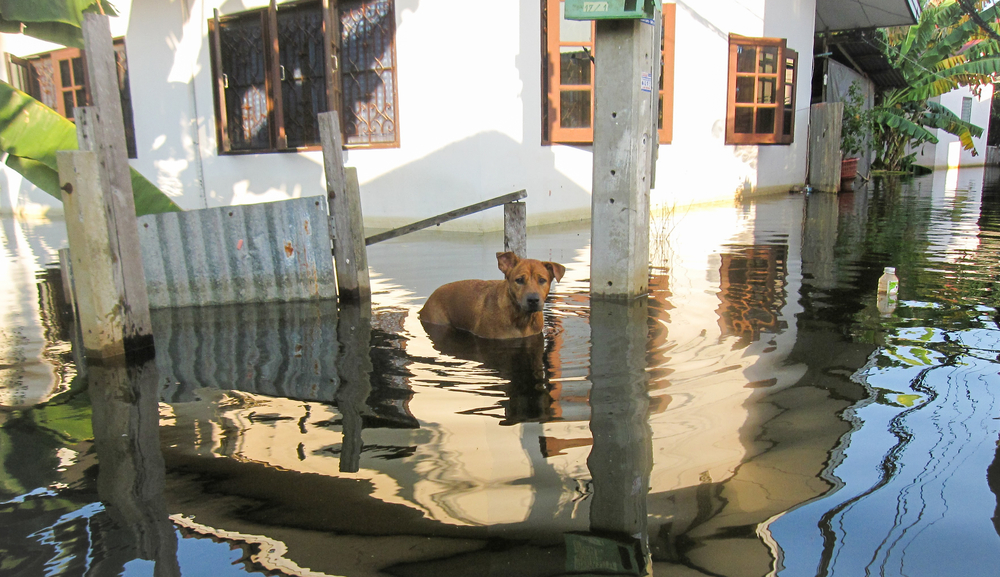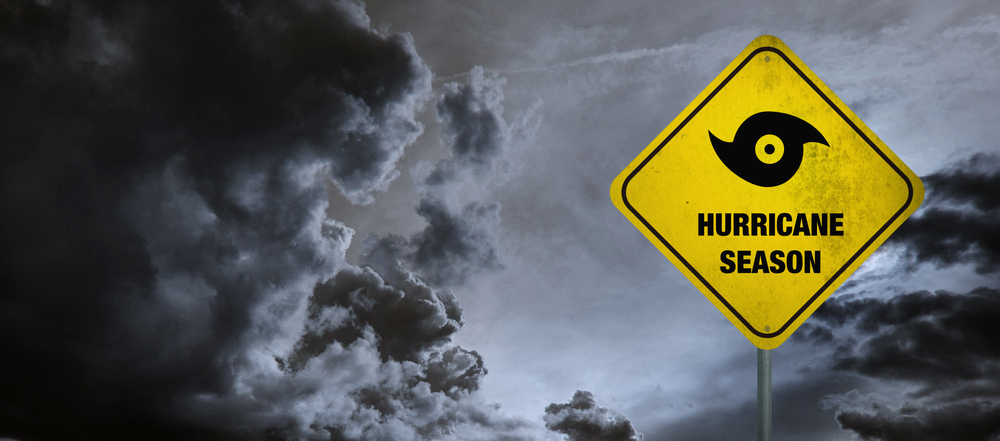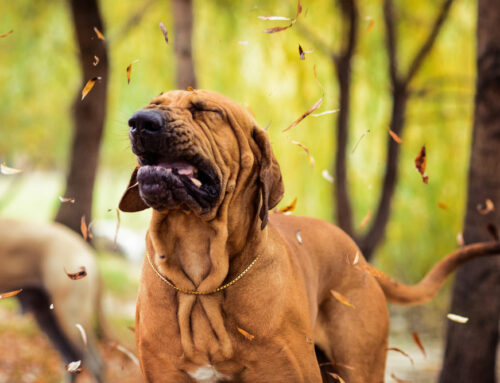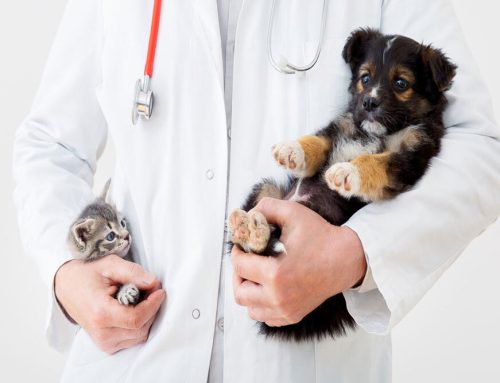Living in a coastal town is like being on vacation every day, but our pleasant environment has a few drawbacks, such as natural disasters. Hurricanes are a serious threat here in Virginia Beach, and can cause extra concern when you need to care and prepare for pets. However, a well-thought out hurricane preparedness plan that includes your four-legged friend can reduce some of the fear and anxiety. Follow our five steps to prepare your pet—and you—for a potential hurricane-related disaster.
Step 1: Add pet supplies to your first aid kit
While you likely already have a first aid kit, you may need to add a few supplies geared specifically toward your pet. Carefully check your kit to ensure you have the following items, and none have expired:
- Gauze pads
- Adhesive tape
- Cotton balls
- Fresh 3% hydrogen peroxide
- Ice pack
- Latex gloves
- Blunt-tipped scissors
- Tweezers
- Antibiotic ointment
- Oral syringe
- Liquid Dawn dish soap
- Towels
- Small flashlight
- Alcohol wipes
- Styptic powder
- Saline eye solution
- Artificial tear ointment
- Muzzle
- Slip leash
Check regularly to ensure your first aid kit is well-stocked and has all the emergency supplies you may need.
Step 2: Put together an evacuation bag for your pet
Keep your first aid kit in an evacuation bag that contains your pet’s essentials. In addition to a first aid kit, ensure you pack the following necessities:
- A seven-day supply of your pet’s food
- A seven-day supply of your pet’s medications
- Bottled water
- Collapsible food and water dishes
- Spare leash, collar, or harness
- Bedding
- Favorite toy
- Treats
- Waste bags
- Litter and disposable litter trays, if needed
- Cleaning supplies
- Medical records
Every three months, rotate your pet’s supplies for continued freshness, and update their medical records, particularly their latest vaccination records.
Step 3: Ensure your pet’s identification is up to date
In the chaos of a hurricane, you and your pet may be separated. Ensure a happy reunion by keeping two copies of your pet’s identification forms and ensuring they are always up to date with the most current contact information. Check your pet’s collar identification tags for signs of wear, ensuring they are legible, secure, and correct. Additionally, have your pet microchipped, if they are not already, and remember to inform the microchip registration company of your current phone number and address when your information changes. Keeping a current color photo of your pet on hand is also important for your reunion efforts. If your phone becomes lost, ensure you have other ways to access your photo gallery, or print off regular updated photos to keep in your evacuation bag so you can create missing pet posters and prove ownership.
Step 4: Crate-train your pet
When a hurricane comes storming in, you likely will need to safely confine your pet to a crate or carrier. Whether you are evacuating or boarding your pet out of harm’s way, ensure they are accustomed to being confined to a small space as you travel. Instead of shoving your scared, stressed pet into a carrier when the time comes, make their carrier a welcoming, safe space well in advance by leaving the carrier out at all times and setting up a cozy bed inside, occasionally putting treats inside to pleasantly surprise your pet. You can also feed your pet their meals inside their carrier, leaving the door open so they can exit when they’re done. When your pet does need to be safely confined in their carrier or crate, a tasty long-lasting chew or treat will be entertainment and a reward.
Step 5: Plan a pet-friendly evacuation route

As you plan a possible evacuation route, ensure you can find pet-friendly accommodations along the way. Many emergency shelters do not accept family pets—only service animals—during evacuations, so search for pet boarding facilities and animal shelters that may house your pet. Plan several alternate routes in case one becomes blocked or inaccessible, and keep handy the phone numbers and addresses of boarding facilities and emergency veterinary hospitals along the way.
During a hurricane, water sources can become contaminated and infectious disease cases can rise as wildlife flees to safety. Ensure your pet is protected from infectious disease by keeping them current on vaccinations. Contact our Providence Vet team to schedule an appointment.






Leave A Comment